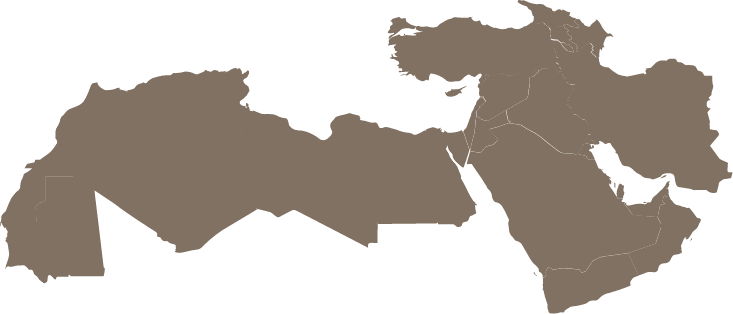From October 6th to October 8th, a dynamic three-day youth camp was held in Jordan, addressing the vital theme of "Conflict Prevention and Peacebuilding." This enlightening event was jointly organized by URI MENA and Desert Bloom. It brought together enthusiastic young individuals from diverse countries in the MENA region, who convened in Amman to engage in meaningful dialogues and discussions centered around the crucial topics of peace and conflict resolution.
The camp's agenda spanned a wide spectrum of subjects, encompassing aspects of identity, diversity, peacebuilding, and much more. To make the learning experience interactive and engaging, the camp utilized games and group exercises that allowed participants to internalize their newfound knowledge.
To foster an environment of trust and open communication, participants initially participated in various team-building exercises and ice-breaking games, facilitating the development of connections among attendees. The camp then employed the "world café" method to establish a common understanding of key concepts relevant to conflict prevention and peacebuilding. Participants, in rotating small groups, brainstormed and deliberated on the meanings of essential terms, such as White Supremacy, Populism, Xenophobia, Violent Radicalization, Socioeconomic Inclusion, Conflict Transformation, Peacebuilding, Community Resilience, Reconciliation, Moral Imagination, and Restorative Justice.
Having laid the foundation for discussion and the use of significant terminology, the camp delved into more complex concepts. Substantial time was devoted to exploring the core values of human rights, particularly human dignity and equality. To enhance comprehension, the main characteristics of human rights were elucidated through interactive exchanges, emphasizing their universality, inalienability, indivisibility, interdependence, and interconnectedness. This understanding was extended to other fundamental values, including freedom, non-discrimination, tolerance, and respect for others. The aim was to protect and ensure human dignity, justice, and a shared responsibility for the rights of all individuals, which necessitates taking responsibility for one's actions and working toward the realization of human rights for all.
Throughout the three days, various workshops were conducted to provide a deeper understanding of conflict prevention. One workshop segment critically examined the concept of identity, employing the iceberg model to encourage participants to recognize the multi-layered nature of identities, both visible and invisible. This heightened awareness highlighted the importance of personal and cultural sensitivity when navigating potential conflicts with others. Another workshop component focused on effective inclusion strategies, using the "privilege walk" exercise to raise awareness about personal privileges and existing social inequalities.
To further explore practical approaches to conflict transformation and peacebuilding, the camp introduced a real-world case study: the Rwandan Genocide. Participants were tasked with analyzing and discussing this case to propose strategies for sustaining peace in Rwanda, which could potentially be applied in other conflict scenarios.
The "Conflict Prevention and Peacebuilding" youth camp was a three-day journey marked by rich content exchange, personal conversations, the forging of new connections and friendships, delectable cuisine, and profound insights. We extend our gratitude to the organizers and all participants for their commitment to initiating and participating in constructive dialogues, contributing to a rewarding and intellectually stimulating exchange."
